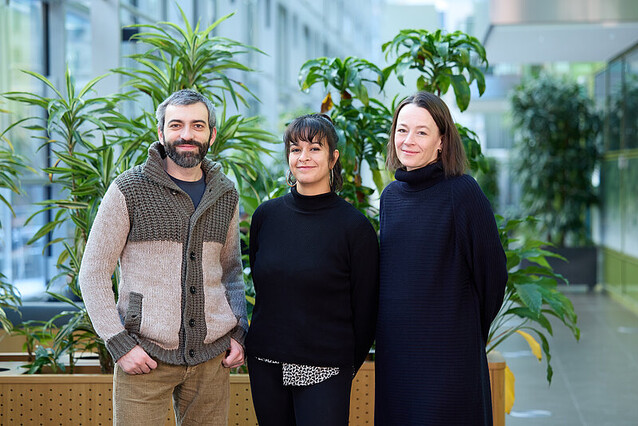Expanding the narrative of women in science

On International Day of Women and Girls in Science, the Equity, Diversity and Inclusion (EDI) Officers at IMP, IMBA, and GMI discuss the implementation of a comprehensive EDI Action Plan and the establishment of new roles aimed at making advances across their research institutes.
What were the biggest steps in support of women in academia at IMP/IMBA/GMI in recent years?
Sonja Paulick-Fabini: Major strides have been made through a commitment to creating awareness and putting that awareness into action. The campus renovated its pregnancy lab with a dedicated office that allows nursing. Earlier work on a code of conduct and anti-discrimination policy was the basis for launching an EDI Action Plan, as well as introducing EDI officers and ombudspeople. Many colleagues have contributed to making these important steps happen. And we have a fantastic volunteer initiative on campus: the EDI group.
Mattia Dona: The cross-institutional EDI Action Plan establishes official policy for supporting women in academia; this includes monitoring employment data to identify trends and gaps, which can highlight areas that require targeted intervention, as well as measuring the effectiveness of their EDI initiatives over time. The GMI and IMBA are members of the Austrian Academy of Sciences, from which we adopted the “Equal Opportunities and Women's Promotion Plan”.
When we talk of women in science, we usually refer to women in academic positions. Is this sufficient?
Mattia: This is clearly insufficient, but I think the focus is on women in academic positions because this is where major imbalances occur. From the employment position report, it is clear that up to PhD/Postdoc positions, there is a substantial balance, but at the next career steps, the percentage of women declines rapidly.
Sonja: Across academia, we need structural changes to ensure women excel not only in the early career stages mentioned by Mattia, but also in leadership roles. But it shouldn’t stop there. Beyond academic positions, true recognition must encompass all women in research institutes, including those in support and administrative roles.
What can people do to support their female peers at our institutes?
Farja Ayala Muñoz: Men, women, and non-binary colleagues should support and promote a safe environment for everyone. We invite every member of our campus community to make use of the channels available to share any concerns or experiences they feel should be brought to our attention. It is our collective aim to cultivate an environment where everyone feels seen, heard, and supported.
From your point of view, what is the most important thing to convey to the public on the occasion of the International Day of Women in Science?
Farja: As a scientist in biology, I have a view of diversity and inclusion informed by an understanding of evolution. Species are more likely to adapt to different environmental pressures if their populations are diverse. Gender is one of the many variables that have the potential to increase the proportion of creative and out-of-the-box thinkers in a population. So let's embrace a diverse research community!